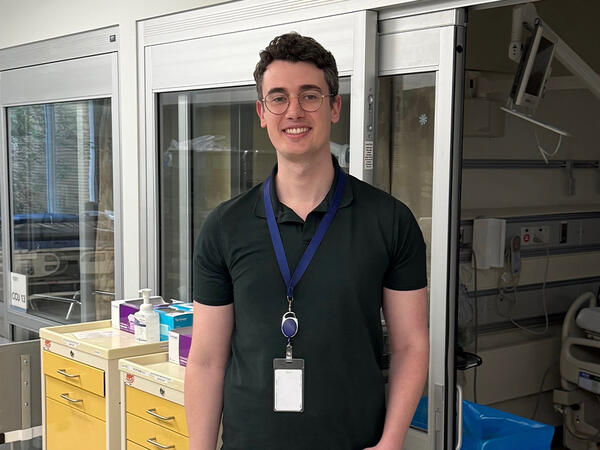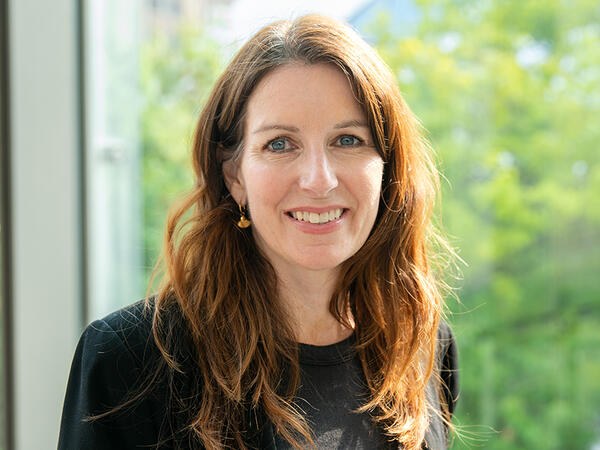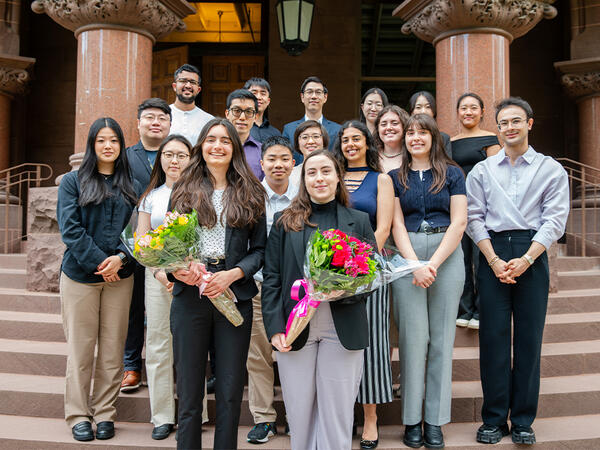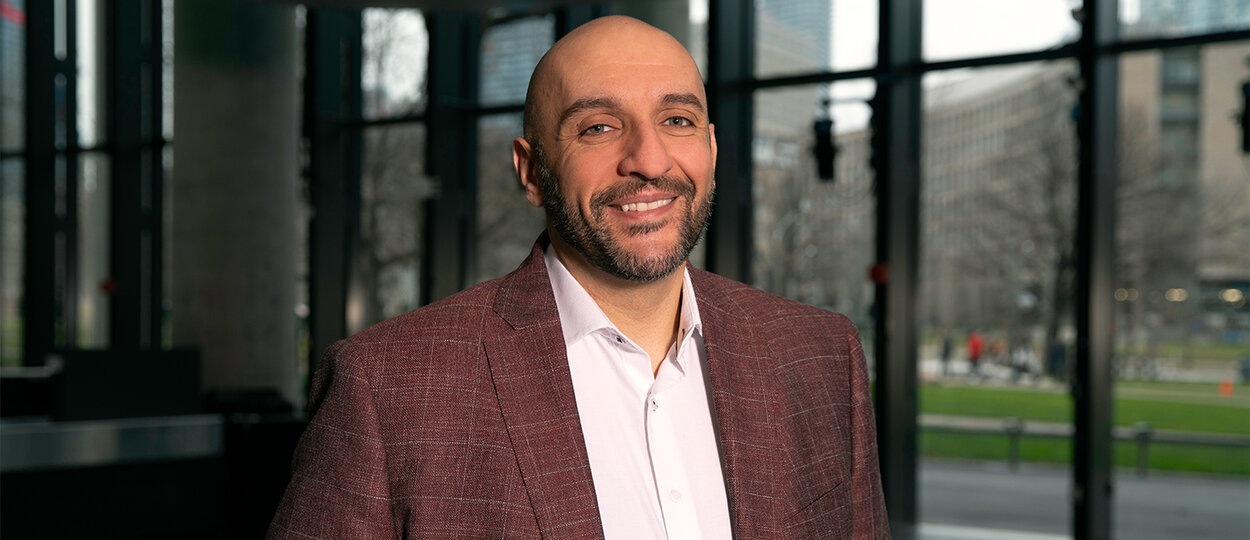Mina Tadrous, assistant professor at U of T’s Leslie Dan Faculty of Pharmacy, has received a prestigious appointment as a Tier 2 Canada Research Chair in Real World Evidence and Pharmaceutical Policy, recognizing his high-impact research program that uses real-world evidence to inform pharmaceutical policies. The Canada Research Chair program is a federal government initiative that supports high-calibre emerging and established researchers at institutions across Canada who are leaders in their field.
The appointment, announced today, will allow Tadrous to continue leading research on pharmaceutical policy, drug safety and effectiveness and, importantly, help to establish a research centre in real-world evidence based at the Leslie Dan Faculty of Pharmacy.
“This appointment is great support to my work studying pharmaceutical policy and using big data to look at the real-world evidence behind the policy implications, safety and effectiveness of drugs to better support policy decisions.”
“This appointment is great support to my work studying pharmaceutical policy and using big data to look at the real-world evidence behind the policy implications, safety and effectiveness of drugs to better support policy decisions,” says Tadrous. “But it also gives us the foundation to start building a place where researchers and stakeholders who are interested in this field can come and work together.”
Real-world evidence analyzes data generated in real health care settings, and can include sources such as electronic health records, public or private insurer databases, patient registries, and wearable devices. It is becoming increasingly important in making decisions about pharmaceutical and health technology policies, particularly when data from clinical trials is limited or unavailable.
“Randomized controlled trials are the gold standard, but in some cases it’s not feasible to do a proper trial or the trial results may not be generalizable to the broader population,” says Tadrous. “Real world evidence can help fill some of those gaps in knowledge. It is a way to augment evidence from trials.”
In his highly collaborative research program at the Leslie Dan Faculty of Pharmacy, Tadrous works with other researchers and stakeholders to use large datasets to understand the safety and effectiveness of medications used by patients in real-world conditions. This information can help optimize medication use, and help policymakers make decisions about which drugs should be approved and covered in public insurance programs.
In recent years, Tadrous has served as co-director of the Ontario Drug Policy Research Network, with Tara Gomes, assistant professor at the Leslie Dan Faculty of Pharmacy, advising on and influencing policies related to dozens of drugs, including opioids, naloxone, and hepatitis treatments. He also co-chaired a national working group, convened by CADTH and Health Canada, that developed guidance on how real-world evidence can be used in regulatory and reimbursement decision-making, and he is leading the charge on developing means to help tackle drug shortages.
Need for collaborative research centre focused on using real-world evidence
In collaborating with other researchers, Tadrous saw a need for a Canadian network of researchers to come together to advance the use of real-world evidence in regulations and policy. Through the new Canada Research Chair, Tadrous will be developing and launching a Centre for Real World Evidence, based at the Leslie Dan Faculty of Pharmacy.
Tadrous’s goals for the Centre are to bring researchers working in real-world evidence together to develop methods and collaborations, build partnerships with stakeholders, and build more capacity in the field through training graduate students and offering continuing professional development.
“Canada has been a powerful force in using real-world evidence, and there’s a huge demand for it, but we need more people and capacity in this field to meet the demand,” says Tadrous. “Amazing researchers are doing this work, and I want to build a place, especially in Toronto, that brings together all these smart people from academia, policy, and industry to find ways to improve real-world evidence in Canada and make Canada a global leader in the space.”
“The use of real-world evidence is growing tremendously, providing insights that can help inform health care decision-making and improve patient outcomes.”
Dr. Nicole Mittman, chief scientist and vice-president, scientific evidence, methodologies and resources at CADTH, worked with Tadrous on the guidance for reporting real-world evidence published in 2022.
“The use of real-world evidence is growing tremendously, providing insights that can help inform health care decision-making and improve patient outcomes. As the global RWE ecosystem rapidly expands, the new Centre for Real-World Evidence will advance Canada’s leadership in this area,” she says. “I’m excited about the contributions Mina Tadrous will make as the new Canada Research Chair in Real-World Evidence and Pharmaceutical Policy, and I look forward to our continued collaboration.”
Using real-world evidence holds a lot of promise for making impactful decisions, and Tadrous is looking forward to launching the Centre and making an impact in health policy.
“This appointment feels surreal to get the nod towards my area of interest,” says Tadrous. “I’m excited to have the opportunity to keep doing the work that I love.”
Explore Real-World Evidence (RWE) in a 4-day program designed by experts and tailored for professionals seeking to enter or enhance their knowledge in this field.
More News
Image

Pharmacy alum’s research shows how full-scope practice improves cancer care
Honoured with a national award, Adrian de Boer says his residency experience was a powerful reminder that he's making a meaningful change to the pharmacy profession.
Read More
Image

Pharmacy alum passionate about helping community pharmacists practice to full scope
As a pharmacy leader at Rexall, Heidi Wittke uses frontline experience to lead initiatives that improve patient care
Read More
Image

Bridging Research and Industry: GRIP 2025 highlights innovation and real-world impact
Over 200 attendees from academia, healthcare, and industry gathered last week for the 2025 GRIP symposium, celebrating the depth and diversity of graduate student research.
Read More
